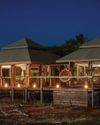The digitisation of nature presents huge opportunities, and some risks.

The field of bio-engineering is not new, despite its recent prominence: humans have been domesticating and selectively breeding animals since as far back as 12,000 BC. More recently, advances in technology have enabled genetic modification and bio-engineering at an unprecedented scale.
From DNA sequencing to gene editing, the human ability to adapt and engineer nature has grown exponentially, creating a promise of a healthier, more predictable natural world. This has created new opportunities to solve prevailing medical and biological challenges: from curing cancer to addressing mental health issues, from developing new drought-resistant crops to eradicating common diseases such as malaria, the field of bio-engineering is undoubtedly one of the shining lights of our near future.
However, this is not without its risks. Even in something as simple as developing antibiotics, humans have unwittingly created potentially larger problems, such as drug-resistant superbugs.
The rise of the superbugs
Diese Geschichte stammt aus der January 2018-Ausgabe von Skyways.
Starten Sie Ihre 7-tägige kostenlose Testversion von Magzter GOLD, um auf Tausende kuratierte Premium-Storys sowie über 8.000 Zeitschriften und Zeitungen zuzugreifen.
Bereits Abonnent ? Anmelden
Diese Geschichte stammt aus der January 2018-Ausgabe von Skyways.
Starten Sie Ihre 7-tägige kostenlose Testversion von Magzter GOLD, um auf Tausende kuratierte Premium-Storys sowie über 8.000 Zeitschriften und Zeitungen zuzugreifen.
Bereits Abonnent? Anmelden

Fit For Purpose
Changing legislation offers a range of opportunities in the health sector

Good For Grinches
Finally! A holiday season Scrooge himself can invest in

A Paradise In The Wilderness
Visitors find freedom at Treedom on the Garden Route

Do It For The Kids
Parenting styles play an important role in helping children develop through the pandemic and beyond

Trekking With Teens
Travelling with adolescents comes with a unique set of challenges

Know Your Mind
Our brain uses shortcuts to think quickly but, sometimes, these mental timesavers let us down. Dr Pragya Agarwal discusses the science of cognitive biases, and why it’s more important than ever to understand how they hold sway over our views

Infected With The Travel Bug Again
As tourism-related establishments up their game to ensure visitor health and safety, it’s possible to feel positive about travelling again

Star attraction
Greater Kruger lodge makes a spectacular first impression

Palala position
The effect of the past on the present is positively felt in a luxury Waterberg lodge

Can the spam!
Irrelevant advertising will almost certainly turn consumers against your product